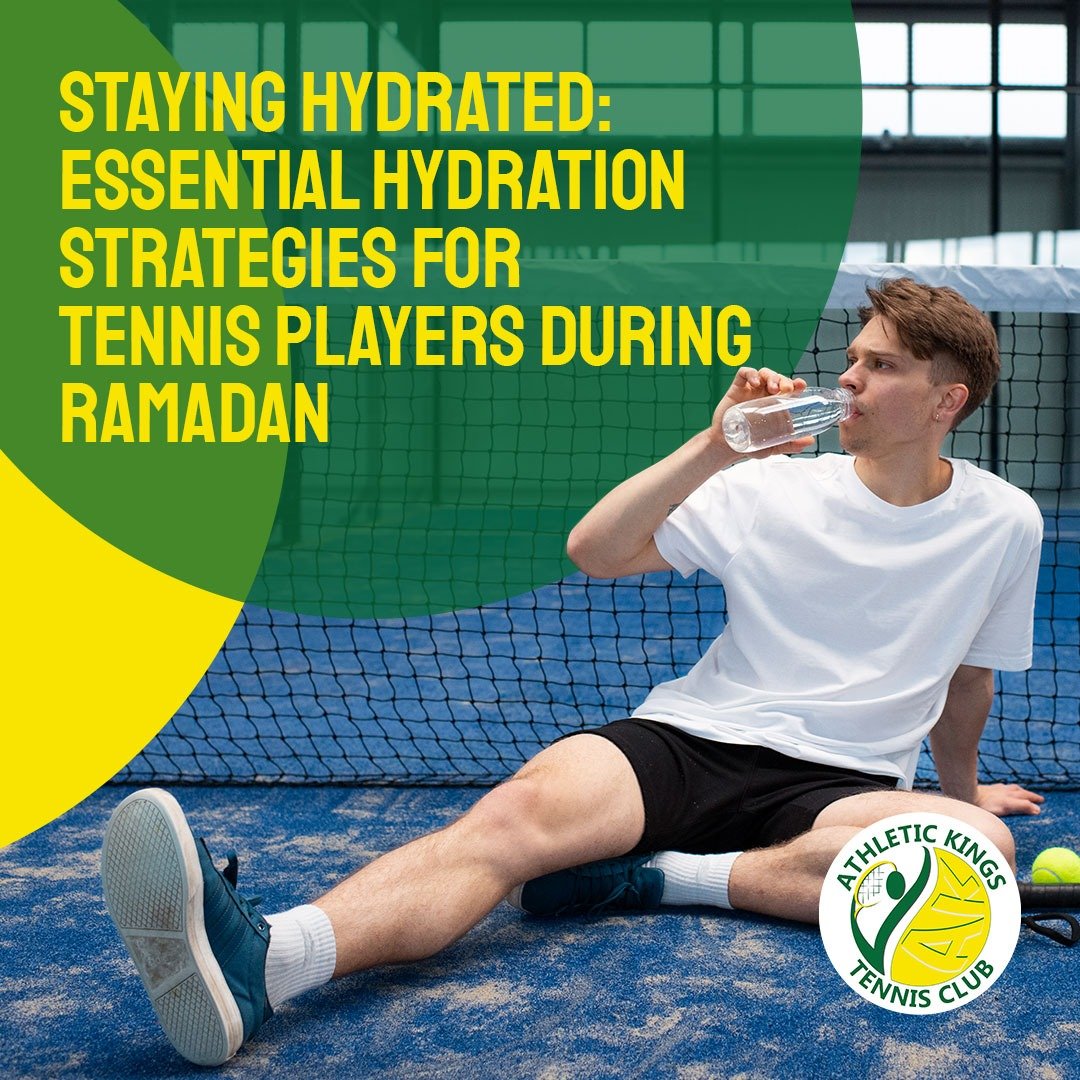Staying Hydrated: Essential Hydration Strategies for Tennis Players During Ramadan
Ramadan is a special challenge for many tennis players in Dubai. Fasting from sunrise to sunset can have a substantial negative effect on your physical performance on the court, even while the holy month encourages spiritual development and introspection. It's even more important to stay active and challenge oneself throughout training to prevent losing steam at this point.
But during Ramadan, staying hydrated becomes crucial, particularly in a city like Dubai with its infamously hot and dry weather. Fatigue, lightheadedness, and impaired muscular function are all consequences of dehydration that can seriously impair your play on the court. I'm a tennis specialist, and I'm here to help you with crucial hydration techniques so you may keep playing the game and observe Ramadan.
The Importance of Hydration During Ramadan in Dubai
During Ramadan, with limited opportunities to replenish fluids throughout the day, staying hydrated becomes even more critical. Dubai's hot and arid climate further exacerbates the situation, causing increased sweating and fluid loss. This can lead to dehydration, which can manifest in various ways, impacting your ability to focus, train effectively, and recover properly.
Essential Hydration Strategies for Tennis Players During Ramadan
Here are some key strategies to ensure proper hydration during Ramadan for tennis players in Dubai:
Hydrate Before and After Fasting: Focus on water intake during Suhoor (pre-dawn meal) and Iftar (evening meal). Consume plenty of water-rich fruits and vegetables during these meals.
Electrolyte Replenishment: Consider incorporating electrolyte-rich beverages during Suhoor and Iftar. These can help replenish essential minerals lost through sweat.
Plan Your Training Sessions: Schedule your training sessions for cooler times of the day, ideally early morning or later evening after breaking the fast.
Listen to Your Body: Pay close attention to thirst cues and don't hesitate to take short water breaks during training sessions, even during fasting hours. Short breaks can significantly improve performance and prevent dehydration.
Monitor Your Urine Color: Aim for pale yellow urine, which indicates proper hydration. Darker colored urine suggests dehydration.
At Athletic Kings, we understand the unique challenges faced by tennis players during Ramadan. Our experienced coaches are here to help you adjust your training regimen and provide guidance on maintaining peak performance while observing the fast and our shaded courts and other premium facilities can help you uninterrupted .We can help you modify your training schedule, create personalized hydration plans, and ensure you have all the support you need to excel on the court throughout Ramadan.
Contact Athletic Kings today and let us guide you towards achieving your tennis goals during this holy month.

